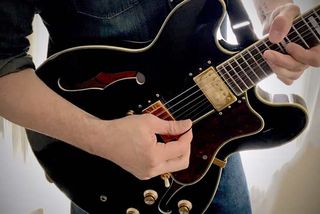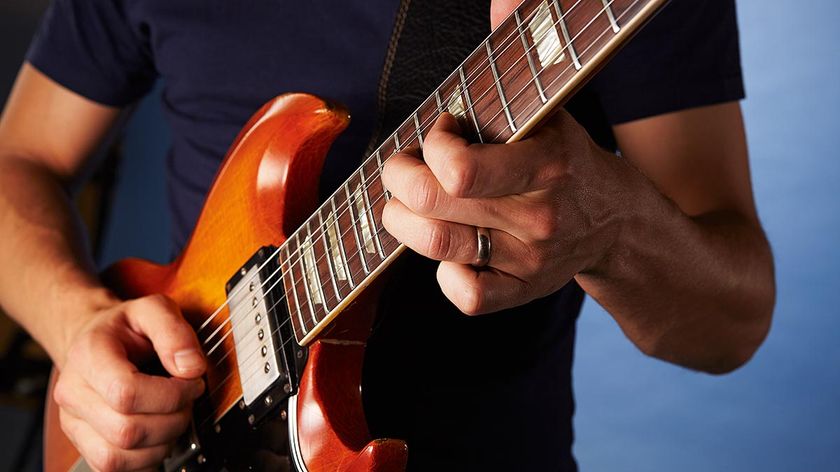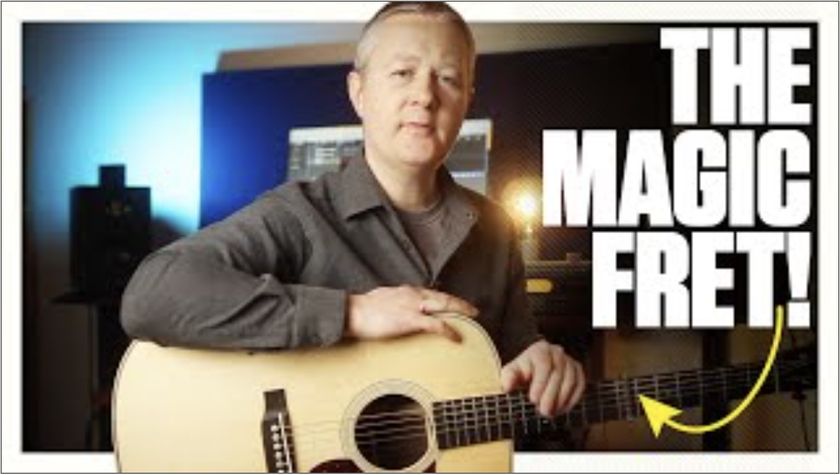How to Develop an Intelligently Crafted Practice Schedule

This lesson deals with a simple but hugely important topic: how to practice.
As a professional guitar instructor, it is my job to address various weaknesses in my students' playing and remedy the issue by constructing some kind of creative plan that will lift them out of a particular trapping.
As any musician that continually challenges themselves already knows, patience is not only a virtue but an absolute part of the equation! I often encounter students who place lots of focus on a few small areas of their playing and unknowingly ignore other key elements that could use development.
In this article, I offer you my suggestions to develop an intelligently crafted practice schedule that should help you on your way to get out of a rut and feel accomplished after every session. Every guitar player has uniquely different goals they would like to achieve sonically with their instrument, but most would agree on some fundamentals that need constant tweaking similar to a body builder at the gym.
In no particular order, I would say some of these goals are fret board knowledge and recognition, music reading, rhythm, soloing, technique and improvisation. Hopefully none of these words offend anybody, especially the music reading! As unpopular as reading music on a five line staff has become on the electric guitar recently, the added benefits are abundant.
Some of these benefits include increased visualization of the guitar neck, understanding harmony, more accurate transcription and rhythmic accuracy. The first step to an organized practice approach is to find a quiet peaceful place as far away from distraction as possible, this will allow you to focus on the task at hand and avoid frustration. A key element many guitarists forget to consider is practice should be work, not just noodling around aimlessly. If it hurts then it is good. NO PAIN, NO GAIN!
Obviously I am talking about brain pain, not physical pain. The second step is to determine how much time you have to set aside and write a list of topics that need tweaking. The third and most important step is assigning a time limit to each varying topic. For example, site reading for 30 minutes and sweeping arpeggio sequences for 20 minutes.
The great thing about assigning a time limit to each topic is practice seems fresh and manageable, and topics you don’t enjoy as much only require a minimal commitment. I actually use a timer that my girlfriend yanked from a large coffee chain, and that keeps me honest about dividing the subject matter! Think about the last time you practiced. Did you shred one scale for an hour and then jam some of you band’s riffs?
Did you learn a popular song and then play every solo you know, just like last time? Well if you are not happy with where you might be at this point, don’t fret, and just try to organize your practice a little better this week! I'll leave you with my practice schedule from yesterday for encouragement. Reading 30 mins, sequencing scales 20 minutes, sweep arpeggios 20 minutes, inverting all seventh quality chords in various string sets 20 mins, improv in A Dorian 30 mins, and learning phrases by ear 15 mins. That is only two hours and 15 minutes, but it was all contrasting subjects that all needed attention.
Try to model your own practice routine based on this idea and your own goals! Thank you very much for reading.
Shawn McGovern is a GIT graduate and sought-out guitar instructor in Providence, Rhode Island, and Los Angeles and may be contacted through his site, shawnmcgovern.com.
Get The Pick Newsletter
All the latest guitar news, interviews, lessons, reviews, deals and more, direct to your inbox!



![Joe Bonamassa [left] wears a deep blue suit and polka-dotted shirt and plays his green refin Strat; the late Irish blues legend Rory Gallagher [right] screams and inflicts some punishment on his heavily worn number one Stratocaster.](https://cdn.mos.cms.futurecdn.net/cw28h7UBcTVfTLs7p7eiLe-840-80.jpg)







